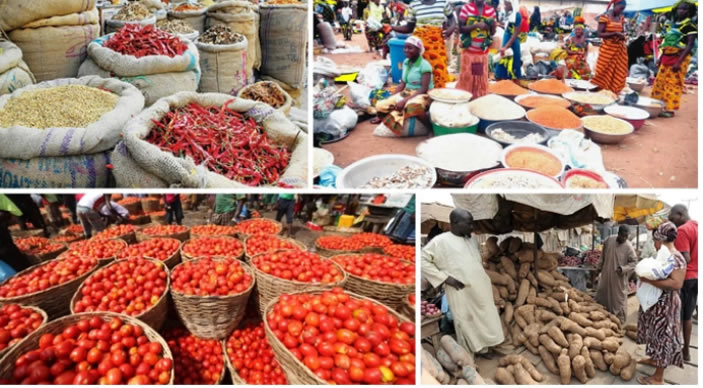As global economic challenges and local agricultural disruptions persist, stakeholders are voicing concerns over a projected increase in food inflation in 2025. Various industry experts, economists, and agricultural organizations are closely monitoring the situation, predicting that a combination of factors will contribute to rising food prices in the coming years.
Factors Contributing to Food Inflation
1. Climate Change Impacts: Erratic weather patterns and climate-related events are increasingly affecting agricultural productivity. Droughts, floods, and changing seasons disrupt planting and harvesting schedules, leading to lower yields. As a result, reduced supply can drive up prices, affecting consumers globally.
2. Supply Chain Disruptions: The COVID-19 pandemic exposed vulnerabilities in global supply chains, causing significant delays and increased transportation costs. Although some recovery has occurred, ongoing logistical challenges, such as port congestion and labor shortages, continue to hinder the smooth movement of agricultural products, contributing to higher prices.

3. **Rising Input Costs: Farmers are facing increasing costs for essential inputs, including fertilizers, seeds, and fuel. The surge in global energy prices has particularly impacted agricultural production costs. As farmers struggle to manage these rising expenses, they may pass on the costs to consumers, further fueling inflation.
4. **Geopolitical Tensions**: Ongoing geopolitical tensions, particularly in key agricultural-producing regions, can disrupt trade flows and exacerbate food scarcity. Conflicts and trade restrictions can lead to increased prices, especially for staple foods, which could push inflation higher.
5. **Policy Changes**: Changes in government policies regarding agriculture, trade, and tariffs can significantly impact food prices. For instance, if governments impose export restrictions to ensure local supply, it can create imbalances in global markets and drive up prices.
### Economic Consequences of Rising Food Prices
The anticipated rise in food inflation has broad economic implications. Higher food prices can lead to increased cost of living for consumers, particularly in low- and middle-income countries where food constitutes a significant portion of household expenditures. This situation could further exacerbate poverty and food insecurity, leading to social unrest and economic instability.
Economists warn that if food inflation continues on this trajectory, it may force central banks to adjust monetary policies to manage inflationary pressures. Such adjustments could include raising interest rates, which might stifle economic growth and investment.
### Stakeholder Responses and Recommendations
In light of these challenges, stakeholders are calling for proactive measures to mitigate the impact of rising food inflation. Some key recommendations include:
– **Investment in Agricultural Resilience**: Governments and private sector stakeholders should invest in research and development to enhance agricultural resilience against climate change. This includes promoting sustainable farming practices, developing drought-resistant crops, and improving irrigation systems.
– **Strengthening Supply Chains**: Improving logistics and transportation infrastructure can help streamline food distribution and reduce costs. Stakeholders are advocating for investments in digital technologies that enhance supply chain efficiency and transparency.
– **Support for Farmers**: Providing financial assistance, subsidies, and technical support to farmers can help them cope with rising input costs and maintain production levels. Ensuring access to affordable credit and insurance can also enhance farmers’ resilience against economic shocks.
– **Regional Cooperation**: Regional cooperation among countries can facilitate trade and improve food security. By reducing trade barriers and enhancing collaboration, nations can work together to stabilize food prices and ensure a steady supply of agricultural products.
Conclusion
As stakeholders warn of higher food inflation in 2025, it is crucial for governments, businesses, and civil society to collaborate and take meaningful action to address the underlying challenges affecting food production and distribution. By investing in sustainable agricultural practices, strengthening supply chains, and supporting farmers, it is possible to mitigate the impact of rising food prices and promote a more resilient food system for the future. Proactive measures now can help protect consumers and ensure food security in an increasingly volatile global landscape.
Support InfoStride News' Credible Journalism: Only credible journalism can guarantee a fair, accountable and transparent society, including democracy and government. It involves a lot of efforts and money. We need your support. Click here to Donate
